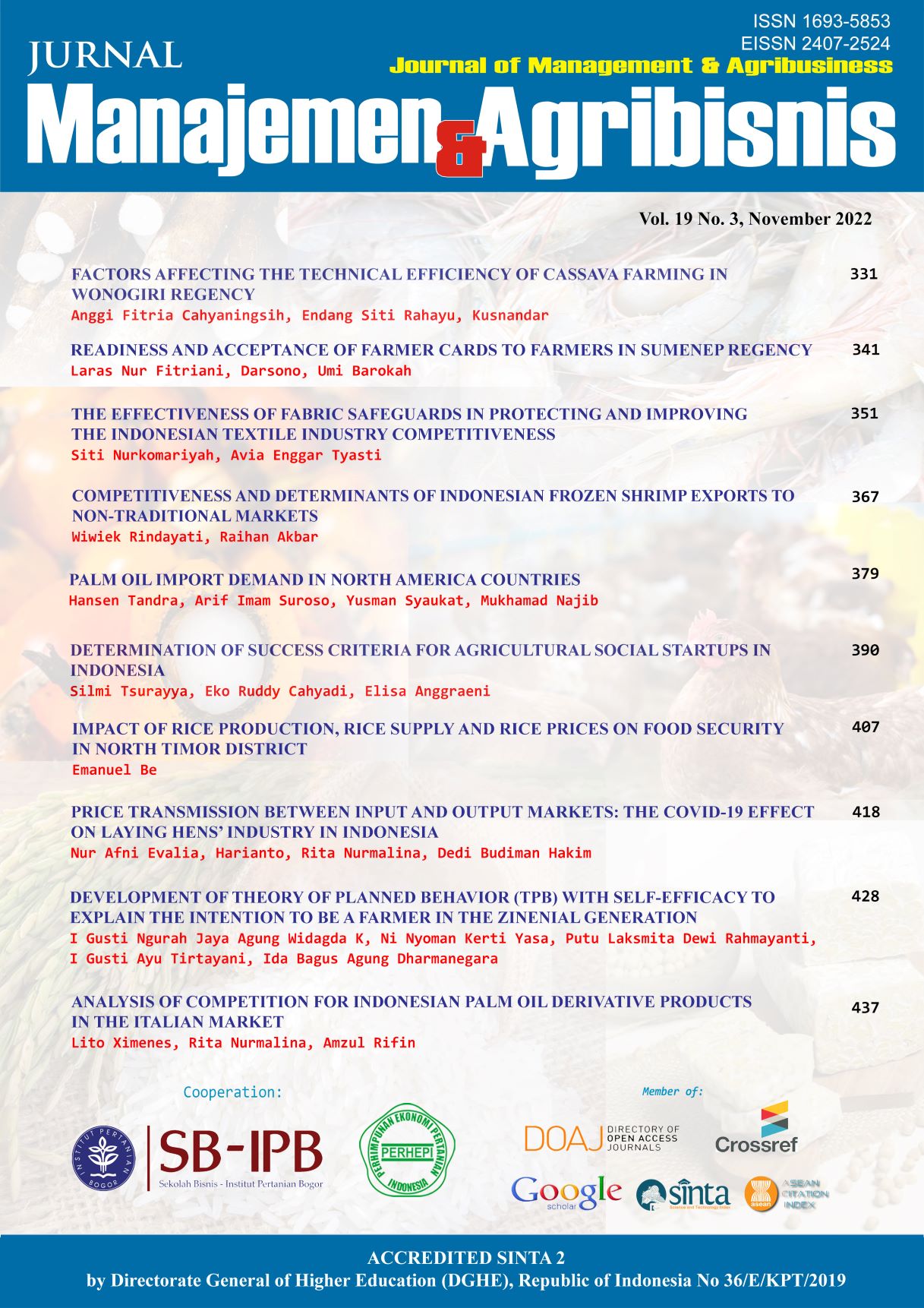Determination of Success Criteria for Agricultural Social Startups in Indonesia
Abstract
It is difficult for social startups to select the most relevant key performance indicators (KPIs) because it is difficult to find a shared impact language to code, classify, and interpret the impact. This study aims to determine key impact performance indicators for assessing success in agricultural social startups in Indonesia. We applied multi-case studies approach to four leading Indonesian agricultural social startups. In total, eight experts consisting of co-founders, human resources managers, and managing partners on each social startup have been asked to assess the importance of success criteria and the performance of the corresponding company in fulfilling the requirements. The analytical hierarchy process (AHP) was applied to determine the relative importance of impact themes and strategic goals. The AHP results showed that smallholder agriculture is the most critical impact theme to achieve as success criteria. Five of the 12 strategic goals with the highest priority were explained as candidates of KPIs: the financial health of farmers, better and stable pricing, social equity and justice, farm profitability, and food availability and diversity. The KPIs developed in this study are anticipated to be utilized by stakeholders involved in the agricultural social startup ecosystems, including practitioners, impact investors, and policy-makers.
Keywords: social entrepreneurship, social impact, social performance, impact assessment, and evaluation
Authors
Authors who publish with this journal agree to the following terms:
- Authors retain copyright and grant the journal right of first publication with the work simultaneously licensed under a Creative Commons Attribution License that allows others to share the work with an acknowledgement of the work's authorship and initial publication in this journal.
- Authors are able to enter into separate, additional contractual arrangements for the non-exclusive distribution of the journal's published version of the work (e.g., post it to an institutional repository or publish it in a book), with an acknowledgement of its initial publication in this journal.
- Authors are permitted and encouraged to post their work online (e.g., in institutional repositories or on their website) prior to and during the submission process, as it can lead to productive exchanges, as well as earlier and greater citation of published work (See The Effect of Open Access).

